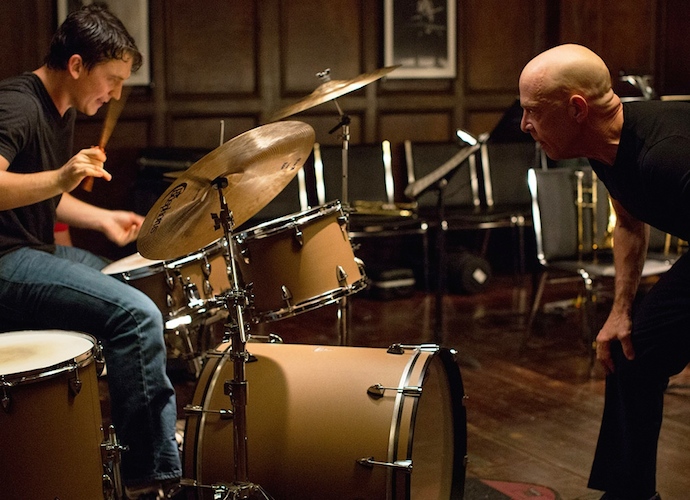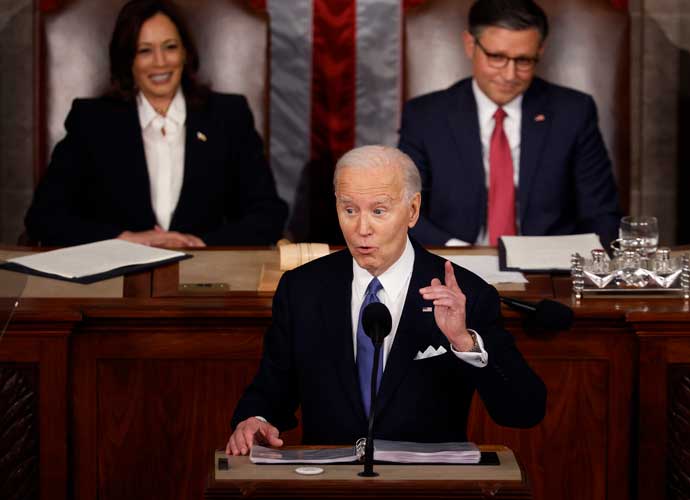‘Whiplash’ Review: Miles Teller And JK Simmons Stun In Thrilling Drama

5/5
Miles Teller and JK Simmons leave it all on the stage in Damien Chazelle’s Whiplash, a nail-biting drama about the relationship between a young drummer and his sadistic band director.
Teller (The Spectacular Now) plays Andrew, a first year drummer at a prestigious jazz conservatory. Hardworking and desperate to be the best, Andrew gets noticed by an infamously selective professor, Fletcher (Simmons), while practicing late at night. The film sounds like your run-of-the-mill, coming of age drama about ambition and talent, with the character arc of any classic sports movie, but it is much more akin to an intellectual thriller.
At its core, Whiplash is a story about ambition and what it takes to succeed, and the editing and camera work reflect the sometimes focused and other times panicked journey an artist finds himself or herself on. From the very first shot – a swift tracking camera that zeros in on Andrew sitting at the drums, sweating from the strain of his practice – Whiplash establishes itself as a story with a constant potential for change. The camera work is clean, the editing rhythmic, and each shot propels the film forward without being too rushed.
Whiplash poses the question: does true artistic genius need to come from a place of fear – fear of failure? Fletcher sure thinks so. He thrives on breaking his students down, just to see if any of them will be able to build themselves into a great musician. It’s tough to watch how far Fletcher will go to destroy Andrew’s confidence, and how eager the students are to go along with Fletcher’s borderline abusive methods. Fletcher is a god among men at the school, and is treated as such by his students.
Admittedly, it’s difficult not to get drawn into Fletcher’s maniacal charm, and that is in no small part due to Simmons’ elegant performance. Simmons’ cool delivery and stunning ability to become violently angry at the drop of a hat – without seeming overly dramatic – makes Fletcher believable instead of over the top. And Teller's eagerness makes Andrew a perfect punching bag for Fletcher. Andrew’s infatuation with Fletcher and what his tutelage signifies (greatness) is almost masochistic, and could easily rub audiences the wrong way. There’s only so much torture a character can volunteer for before he or she loses the empathy of an audience, and Andrew walks a thin line. Teller, however, is effortlessly charming in every role, and his turn as Andrew is no exception. Even when I felt like kicking Andrew for returning to Fletcher day after day, I still wanted him to succeed more than anything I’ve ever wanted for myself.
Whiplash is a rare type of film that is both thoroughly entertaining and thought provoking without being preachy or manipulative. It’s a tough film to watch because it forces the audience to ask themselves how far they would go to be great. Andrew isn’t a dumb guy, he’s driven and talented, and yet he embarks on a masochistic journey for greatness that could very well lead to his death. It’s up to the audience to decide whether or not they support Andrew in that mission.
RELATED ARTICLES
Get the most-revealing celebrity conversations with the uInterview podcast!








Leave a comment